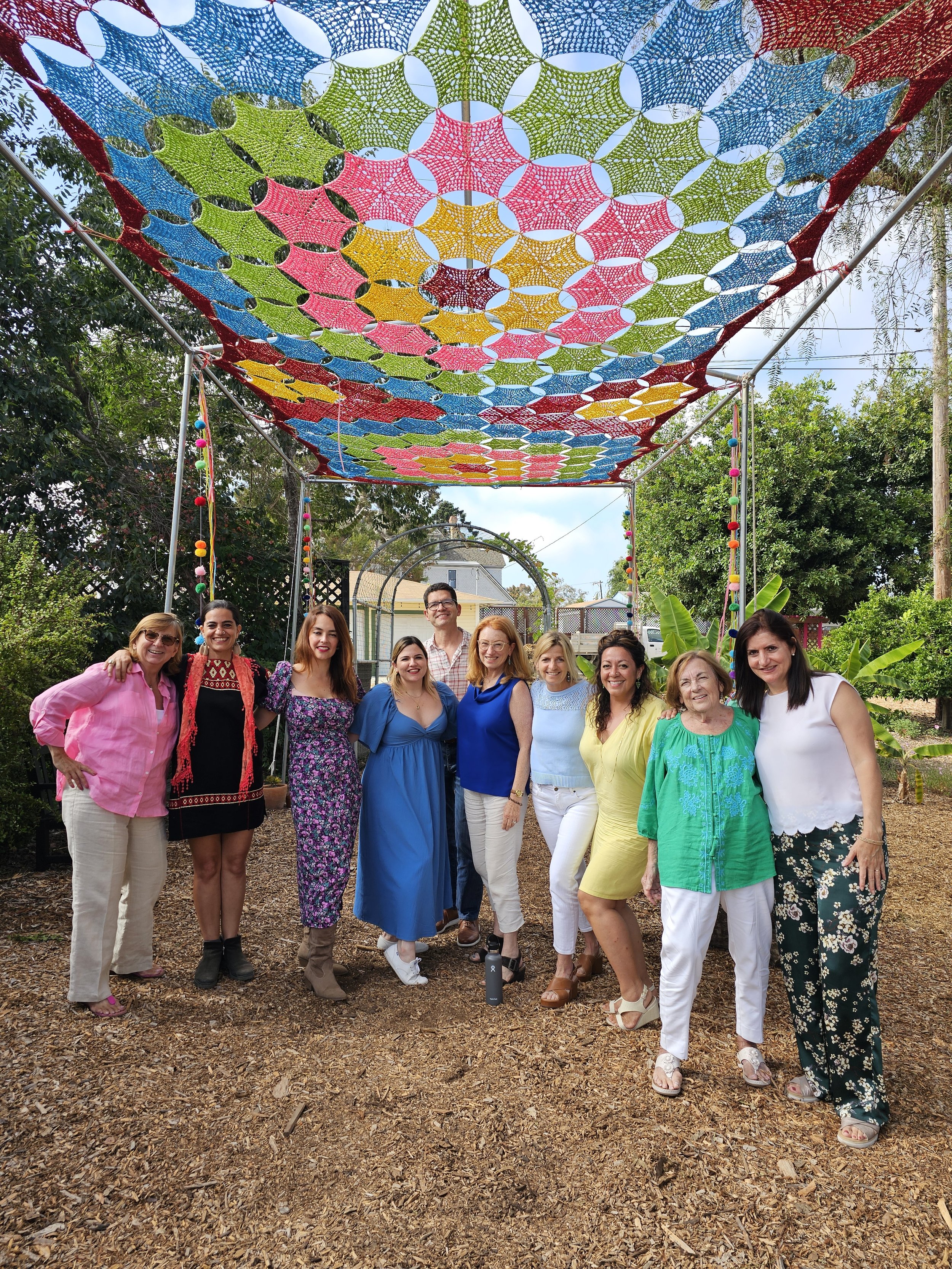
Our leadership programs increase leaders’ abilities to deal with uncertainty, complexity, and change and give leaders new tools for building relationships and cultivating the collective intelligence of their teams.
The list below are examples of tools that help individuals and teams develop greater emotional intelligence, further the “ownership of the self,” and incubate the level of complex thinking and emotional regulation required to effectively work with others on your organization's mission to transform your community and world for the better.
Overcoming Negative Self-Talk & Harnessing Your Introspective Abilities
Prolonged rumination and disorienting self-talk can impact your ability to lead and develop healthy relationships and cause you to fold under pressure. Your inner voice is part of what is called the working memory system, a mental workspace that supports cognitive abilities such as reasoning, problem-solving, understanding, and decision-making. However, the pressures of leadership, gender, or racial inequalities can pollute your cognitive resources, increasing anxiety and impairing your ability to connect to yourself and your community. Recognizing and challenging negative self-talk can recast all parts of your emotional life and transform your ability to build genuine and meaningful relationships. This workshop aims to reconnect and support leaders in remembering the tools they're already equipped with and introduce them to strategies from the field of cognitive psychology to allow their inner voice to return to the vital purpose of what it has evolved to do. By reconnecting with the tools you already possess and integrating strategies from cognitive psychology, you can reclaim the power of your inner voice to guide you toward growth and authenticity. This workshop offers an opportunity to rediscover your inner strength and develop a resilient mindset for effective leadership and fulfilling relationships.
Healing your Most Strongly Felt and Persistent Pinches
When you are triggered or pinched, the negative emotion that floods your mind-body system is experienced with the same intensity every time it happens, as if it is the first time you're experiencing it. Putting you in a reflexive state and, consequently, disconnecting you from your more reflective abilities. This reflexive state usually fills you with emotions, mostly negative, about how the other person is the problem. It's not a great recipe for learning. Yet, conflict can be one of our best growth opportunities when we have the support to make meaning of our internal world and release ourselves from the psychological threats (SCARF & Stereotype Threats) we are still gripped by. Gender, racial, and ethnic stereotype threats are some of the most deeply felt triggers. When you experience a trigger, it is also a wound revealing itself; therefore, you have an opportunity to heal. When you heal, it means you are compassionately engaging with the truths of your life, past and present. Addressing truths can be emotionally frightening, even if one feels that there is something potentially good for them at the other end of truth. As such, the guidance of a skilled teacher and facilitator, sorting your most disorienting trigger, can bring awareness to some of the invisible "agendas" that have you and open an opportunity to release yourself from their paralyzing or volatile effects. This workshop aims to return you to an empowering space where you are driving your critical agendas for changing the world for the better.
Deep Listening for Leaders
Intentional listening has the power to build healing relationships. That is because our stories are not immutable over time. As stories are exchanged, people can also change when healing becomes part of the storyteller's experience. This experiential workshop will investigate ancestral listening practices, stillness, nonjudgment, and respect for the nature of each individual to help us bridge the difference between what we experience as "normal" in the world of work and what is "natural" in human cooperation and collaboration.
Giving & Receiving Feedback
Receiving feedback is essential for leadership growth, but we often make ourselves unapproachable or avoid asking for it altogether. This workshop helps leaders navigate the complexities of effectively asking for and receiving feedback. Participants will explore different types of feedback and learn strategies to solicit frank input that fosters growth and self-awareness. Emphasizing the importance of a feedback-rich environment, the workshop delves into techniques for processing and acting on feedback without defensiveness. By cultivating a mindset of curiosity and openness, leaders can transform feedback into a powerful tool for personal and professional development. Through interactive exercises, real-world scenarios, and guided discussions, attendees will develop the skills to give and receive feedback that nurtures authentic relationships, drives meaningful change, and promotes continuous improvement.
Leaning into Productive Conflict
Complex work is interdependent, and conflict is inherent in all interdependent work. This workshop utilizes research-based tools and equips participants with strategies for surfacing, managing, and resolving conflicts constructively. Conflict frameworks offer insights into five conflict-handling modes: Competing, Collaborating, Compromising, Avoiding, and Accommodating. Each mode serves unique purposes and can be applied strategically depending on the situation. Participants will learn to identify their default conflict styles and explore how to develop their underutilized modalities. Through case studies, role-playing exercises, and facilitated discussions, attendees will deepen their understanding of conflict dynamics. They will also gain effective communication, negotiation, and mediation skills, fostering environments where conflicts are addressed productively and used as learning opportunities.
The Power of Forgiveness
Forgiveness is a healing process that begins with releasing resentment and bitterness toward those who have caused harm and can bring about a sense of calm. Individuals reclaim their power and agency by choosing to forgive, freeing themselves from the control and influence of those who have wronged them. This workshop explores the mind-body benefits of forgiveness, emphasizing its role in spiritual and emotional growth. Participants will engage in practical strategies for embracing forgiveness, even in challenging situations such as interpersonal conflicts or sensed injustices. Through interactive exercises and reflective discussions, attendees will develop skills to navigate forgiveness and deepen emotional well-being and authentic relationships.

